According
to WHO, cataract is the major cause of blindness. Over 20 million
Americans over the age of 40 suffer from cataracts in one or both the
eyes (1).
This eye disorder is known to make your vision cloudy initially and may
cause blindness if not treated in time. Hence, it is important to treat
this condition at the earliest. While eye operations and surgeries are
the conventional methods of treating cataracts, you can also treat this
condition with home remedies. In this article, we will talk about
effective home remedies that not only treat cataracts but also prevent
their recurrence. Let’s begin!
A cataract develops eventually and may even interfere with your vision. Although you can develop a cataract in both eyes, it may not necessarily be at the same time.
Cataracts can be classified into different types based on their cause and where they develop.
The different types of cataracts include:
• A clean washcloth
2. Add a teaspoon of water to this mixture.
3. Soak two cotton pads in the mixture and place them over closed eyes.
4. Leave them on for 15 to 20 minutes and then take them off.
In addition to following these remedies, you must also eat right. Given below are some foods that you must include in your daily diet to help fight cataracts better.
Hope this article helps you in your fight against cataracts. For further doubts, feel free to get in touch with us via the comment box below.
Source Click here
Table Of Contents
- What Is A Cataract?
- Types Of Cataracts
- Signs And Symptoms Of Cataracts
- Causes Of And Risk Factors For Cataracts
- Diagnosis
- Natural Ways To Treat Cataracts
- Best Foods For Cataracts
- Prevention Tips
What Is A Cataract?
The formation of a cloudy and dense area in the lens of the eye is medically termed as a cataract. It is usually a result of clumping of proteins in the eye. This clumping prevents the lens from sending clear images to the retina.A cataract develops eventually and may even interfere with your vision. Although you can develop a cataract in both eyes, it may not necessarily be at the same time.
Cataracts can be classified into different types based on their cause and where they develop.
Types Of Cataracts
- Nuclear Cataracts: These are formed in the center of the lens and may cause the nucleus of the lens to turn brownish or yellowish.
- Cortical Cataracts: These are wedge-shaped and are formed around the nucleus (center) of your lens.
- Posterior Cataracts: These affect the backside of your lens and are formed faster than the former types.
- Congenital Cataracts: These cataracts are present at birth or may surface during your child’s first year.
- Secondary Cataracts: Secondary cataracts are often a result of health conditions like diabetes and glaucoma or medications like steroids.
- Traumatic Cataracts: Cataracts that are a result of trauma to your eyes over the years are called traumatic cataracts.
- Radiation Cataracts: As the name suggests, this type of cataract occurs after an individual undergoes radiation for cancer.
Signs And Symptoms Of Cataracts
The signs and symptoms of cataracts are:- Blurry vision
- Reduced vision at night
- Colors look faded
- Your sensitivity to glare increases
- Visibility of halos while looking directly at the light
- Double vision
- Power of your prescription glasses keeps changing
Causes Of And Risk Factors For Cataracts
Cataracts can occur due to:- Overproduced oxidants
- Trauma or injury
- Radiation
- Medications like steroids
- Smoking
- Exposure to ultraviolet radiation
- Medical issues like diabetes and glaucoma
- Smoking
- Advancing age
- Alcohol abuse
- Obesity
- High blood pressure
- Past injuries to your eye
- A history of cataracts in your family
Diagnosis
Your doctor may run the following tests to look for a developing cataract:- A comprehensive eye test that includes an eye chart test to check your distant vision and a tonometry test to measure your eye pressure
- Testing your eyes’ sensitivity to glare
- Testing how you perceive colors
Natural Ways To Treat Cataracts
1. Castor Oil
You Will Need
1-2 drops of hexane-free castor oilWhat You Have To Do
- Pour a drop of castor oil in both your eyes before sleeping.
- Leave the oil in overnight.
How Often You Should Do This
Do this once daily for 1 to 6 months.Why This Works
The powerful antioxidant properties of castor oil help repair the oxidative damage caused to your eyes (1).2. Vitamins
Vitamins C and D can help prevent or slow down the progression of cataracts (2), (3). So, consume foods rich in these vitamins like citrus fruits, green leafy vegetables, milk, cheese, eggs, avocados, and almonds. You can also consult your doctor if you want to take additional supplements for these vitamins.3. Apple Cider Vinegar
You Will Need
- 1 tablespoon of apple cider vinegar
- 1 glass of warm water
- 1 tablespoon of honey
What You Have To Do
- Add a tablespoon each of honey and apple cider vinegar to a glass of warm water.
- Mix well and consume this mixture daily.
- You can also use carrot juice instead of water for added benefits.
How Often You Should Do This
Do this once daily.Why This Works
Apple cider vinegar is packed with antioxidants that are extremely beneficial for your health. Regular consumption of apple cider vinegar can help repair the damaged lens (4).4. Essential Oils
You Will Need
1-2 drops of frankincense or lavender oilWhat You Have To Do
- Take one or two drops of frankincense or lavender oil and rub it in between your palms.
- Apply it to closed eyes and leave it on for a few minutes.
- Rinse it off with water.
How Often You Should Do This
You must do this 1 to 2 times daily.Why This Works
Frankincense and lavender oils are popular remedies to treat cataracts due to their antioxidant potential. They can help improve your vision by repairing the damage caused to your eyes by oxidative stress (5), (6).5. Aloe Vera
You Will Need
1 tablespoon of aloe vera gelWhat You Have To Do
- Extract a tablespoon of fresh aloe vera gel.
- Refrigerate it and apply it to closed eyes.
- Leave it on for 15 to 20 minutes and rinse it off with water.
- You can also consume a cup of aloe vera juice daily to speed up your recovery.
How Often You Should Do This
Do this a few times daily for faster results.Why This Works
Aloe vera is an anti-inflammatory and a powerful antioxidant. It provides nourishment to your eyes and fights signs of cataracts and other eye abnormalities (7).6. Coconut Water
You Will Need
• A few drops of coconut water• A clean washcloth
What You Have To Do
- Pour a few drops of chilled coconut water
- into your eyes and close them.
- Place a warm washcloth over your closed eyes.
- Leave it on for 5 to 10 minutes.
How Often You Should Do This
You must do this at least twice daily.Why This Works
Coconut water is believed to work like magic for cataracts. It is packed with electrolytes that provide instant nourishment to your eyes, and its antioxidant potential helps your eyes recover faster from oxidative damage (8).7. Flaxseed Oil
You Will Need
½-1 tablespoon of cold pressed flaxseed oilWhat You Have To Do
Add half to one tablespoon of flaxseed oil to your favorite dish or smoothie.How Often You Should Do This
Do this on a daily basis for best results.Why This Works
Flaxseed oil is a rich source of omega-3 fatty acids, making it one of the best remedies for treating cataracts. Omega-3 fatty acids exhibit antioxidant and anti-inflammatory activities that work well against eye disorders like macular degeneration and cataracts (9).8. Garlic
You Will Need
Peeled garlic clovesWhat You Have To Do
- Chew on one or two garlic cloves daily.
- You can also add garlic to your favorite dishes if the flavor is too strong for you.
How Often You Should Do This
You must do this 1 to 2 times daily.Why This Works
Garlic contains allicin, which is a strong antioxidant that can repair oxidative damage in your eyes (10).9. Ginger
You Will Need
- ½ teaspoon of ginger juice
- ½ teaspoon of lemon juice
- 1 teaspoon of water
- Cotton pads
What You Have To Do
1. Mix half a teaspoon each of lemon juice and ginger juice.2. Add a teaspoon of water to this mixture.
3. Soak two cotton pads in the mixture and place them over closed eyes.
4. Leave them on for 15 to 20 minutes and then take them off.
How Often You Should Do This
Do this 1 to 2 times daily.Why This Works
The topical application of ginger juice is a good way to cleanse your eyes and repair the damage. Ginger is anti-inflammatory and can help soothe inflammation in your eyes, and its antioxidant effects can repair oxidative damage (11), (12).10. Ginkgo Biloba
You Will Need
40-120 mg of ginkgo biloba supplementsWhat You Have To Do
Take 40 to 120 mg of ginkgo biloba supplements.How Often You Should Do This
Do this once daily.Why This Works
Gingko biloba has strong antioxidant properties that have a positive effect on cataracts. This was proved in a study published in the Japanese Journal Of Ophthalmology in 2004 (13).11. Green Tea
You Will Need
- 1 teaspoon of green tea
- 1 cup of water
What You Have To Do
- Add a teaspoon of green tea to a cup of water and bring it to a boil.
- Simmer and strain.
- Allow the tea to cool a little before drinking it.
How Often You Should Do This
You must drink this twice daily.Why This Works
Green tea is packed with polyphenols that are powerful antioxidants. These polyphenols can help protect your lens from further damage and reverse existing cataracts to an extent (14).12. Honey
You Will Need
- 1 teaspoon of honey
- 1-1 ½ teaspoons of water
What You Have To Do
- Mix the honey with water.
- Pour this solution into your eyes and blink away the excess water.
- You can also consume a teaspoon of honey regularly.
How Often You Should Do This
You must do this 1 to 2 times daily.Why This Works
Honey is a powerful antioxidant and anti-inflammatory compound. It can help treat existing damage to your lens and also prevent future ones (15).13. Lemon Juice
You Will Need
- ½ teaspoon of lemon juice
- 1 teaspoon of water
- Cotton pads
What You Have To Do
- Dilute half a teaspoon of lemon juice with a teaspoon of water.
- Mix well and soak a cotton pad in it.
- Place the cotton pads over closed eyelids and leave them on for about 20 minutes.
- Remove the cotton pads and rinse your eyes with plain water.
How Often You Should Do This
You must do this at least once daily.Why This Works
Regular use of lemon juice can help soothe eye irritation and other symptoms due to its citric acid content. It also has antioxidant properties that can help reduce cataracts (16).14. Onion Juice
You Will Need
- 1 teaspoon of fresh onion juice
- 2 teaspoons of water
What You Have To Do
- Add two teaspoons of water to a teaspoon of fresh lemon extract.
- Mix well and pour a drop of this solution into both the eyes.
- Blink away the excess mixture.
How Often You Should Do This
Do this 1 to 2 times daily.Why This Works
The daily use of onion juice as eye drops enhances the functioning of your eyes. It also helps prevent cataract formation in the eyes as concluded by a study published in the Indian Journal Of Ophthalmology in 2009 (17).15. Wheatgrass Juice
You Will Need
1-2 ounces of fresh wheatgrass juiceWhat You Have To Do
Consume 1 to 2 ounces of wheatgrass juice daily.How Often You Should Do This
Do this for a few weeks to see results.Why This Works
Wheatgrass is an excellent home remedy for treating cataracts. It is rich in beta-carotene, which helps enhance your vision and prevent cataracts (18).16. Olive Oil
You Will Need
Olive oil (as required)What You Have To Do
- Add olive oil to your favorite dishes and salads.
- You can also pour a drop of olive oil into your eyes.
How Often You Should Do This
You must do this on a regular basis.Why This Works
Olive oil is the perfect alternative to your regular cooking oil if you wish to fight cataracts. It is packed with antioxidants that help repair damaged lens and keep your eyes nourished and moisturized (19), (20).In addition to following these remedies, you must also eat right. Given below are some foods that you must include in your daily diet to help fight cataracts better.
Best Foods For Cataracts
Since excess oxidative stress is believed to be one of the main causes of cataracts, foods rich in antioxidants can help. Consume foods like:- Citrus fruits
- Green leafy vegetables
- Guavas
- Bell peppers
- Papaya
- Broccoli
- Carrots
- Sweet potato
- Kale
- Spinach
- Turnip
Prevention Tips
- Quit smoking.
- Wear shades while you are out in the sun.
- Limit your alcohol intake.
- Keep a check on your blood sugar levels.
- Get your eyes tested regularly.
- Do not strain your eyes for long periods.
Hope this article helps you in your fight against cataracts. For further doubts, feel free to get in touch with us via the comment box below.
Source Click here

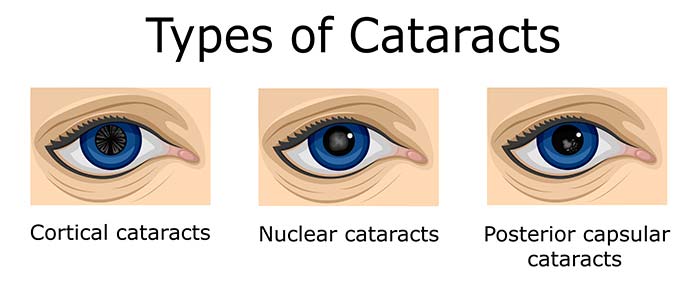





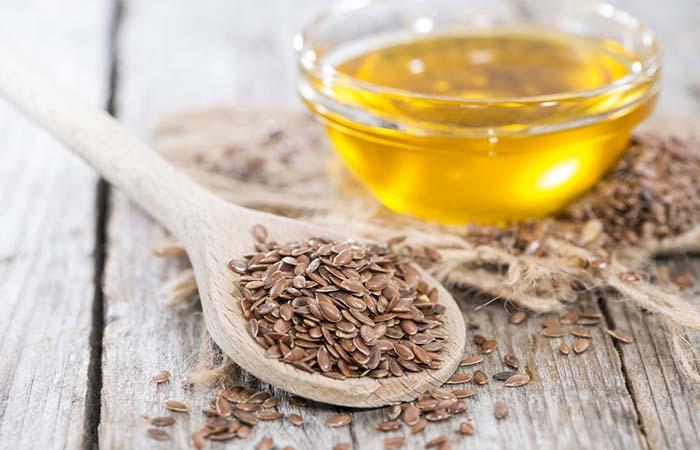





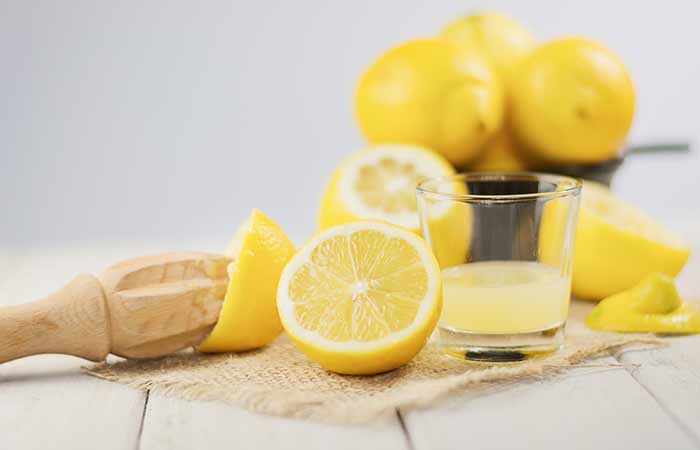
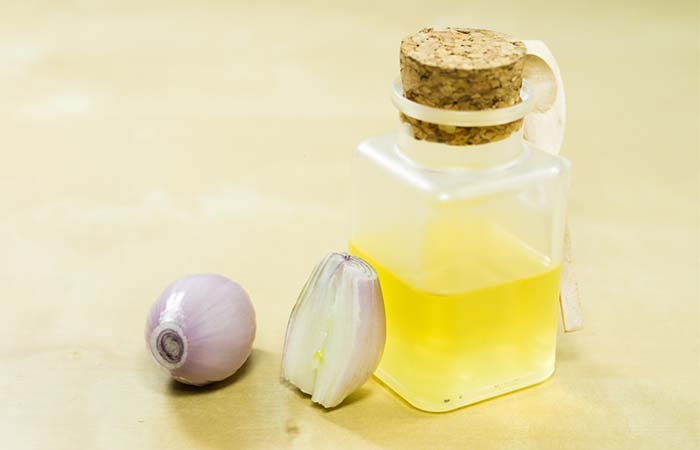
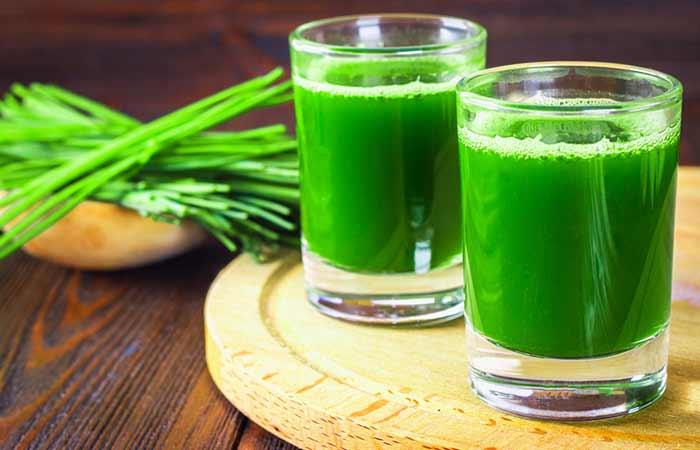

Comments
Post a Comment